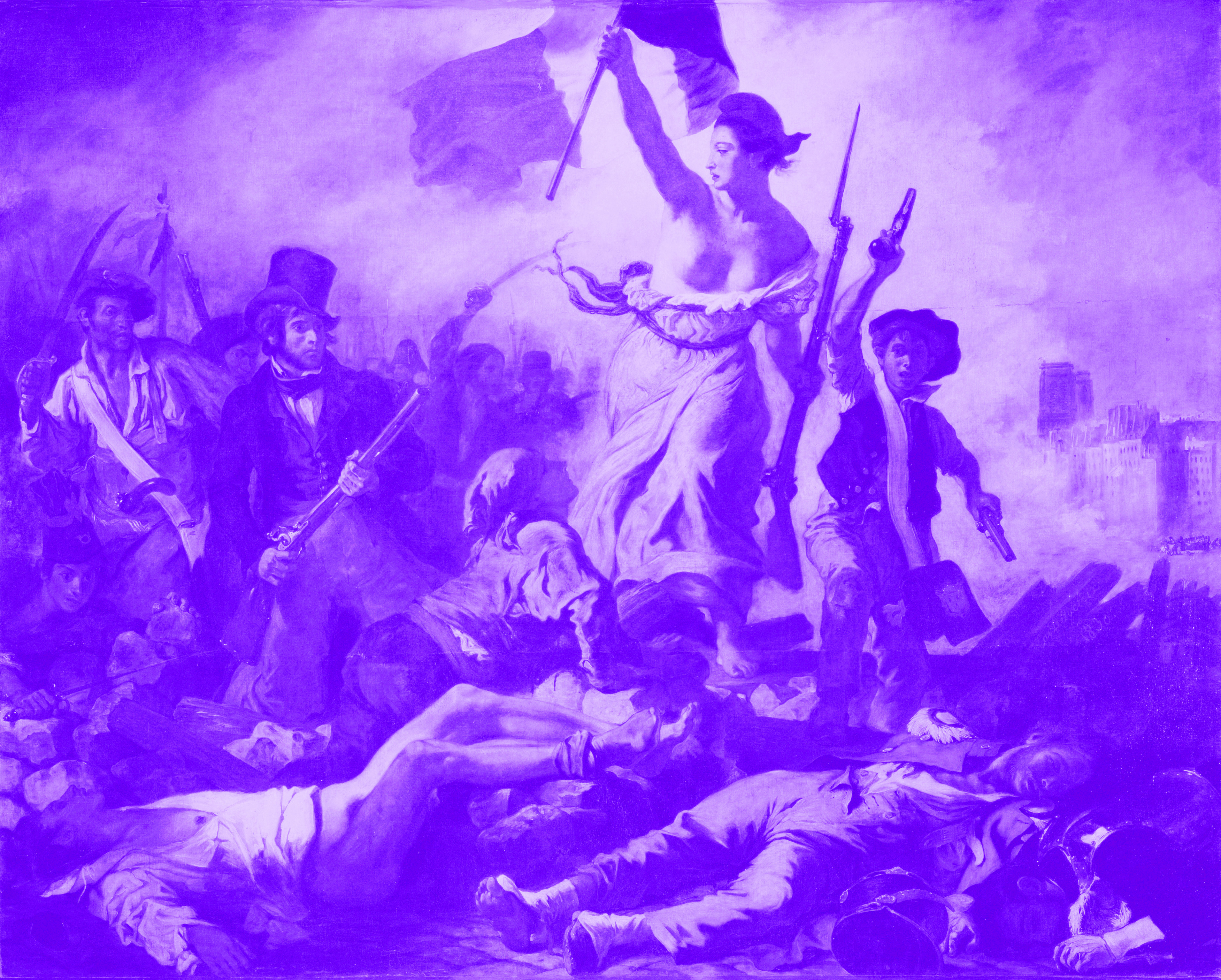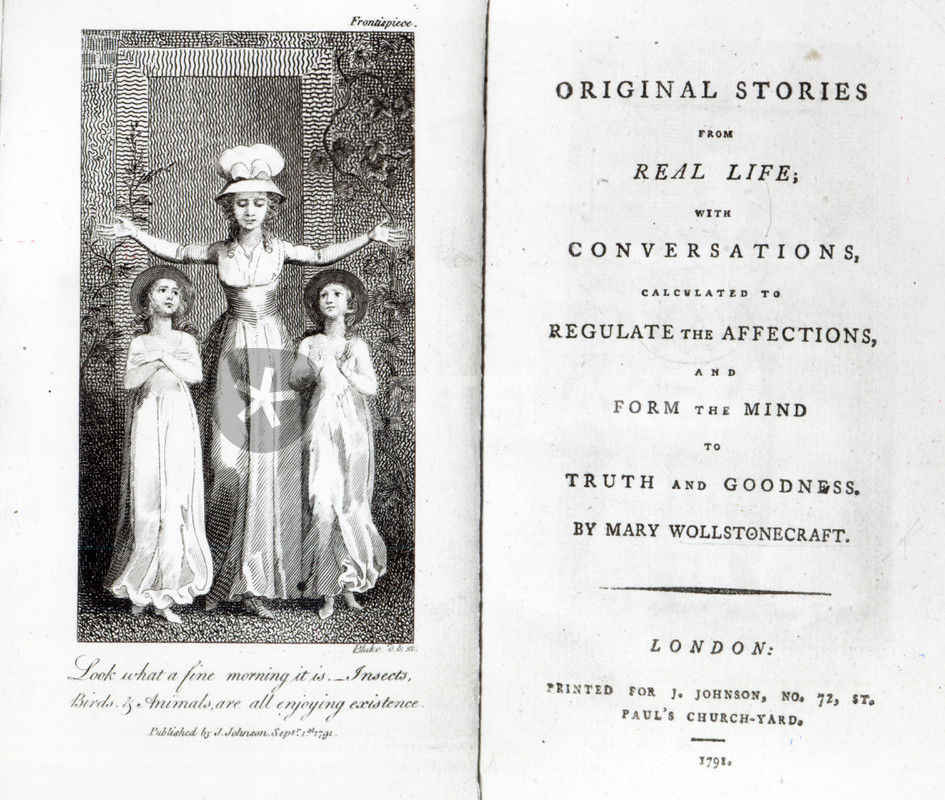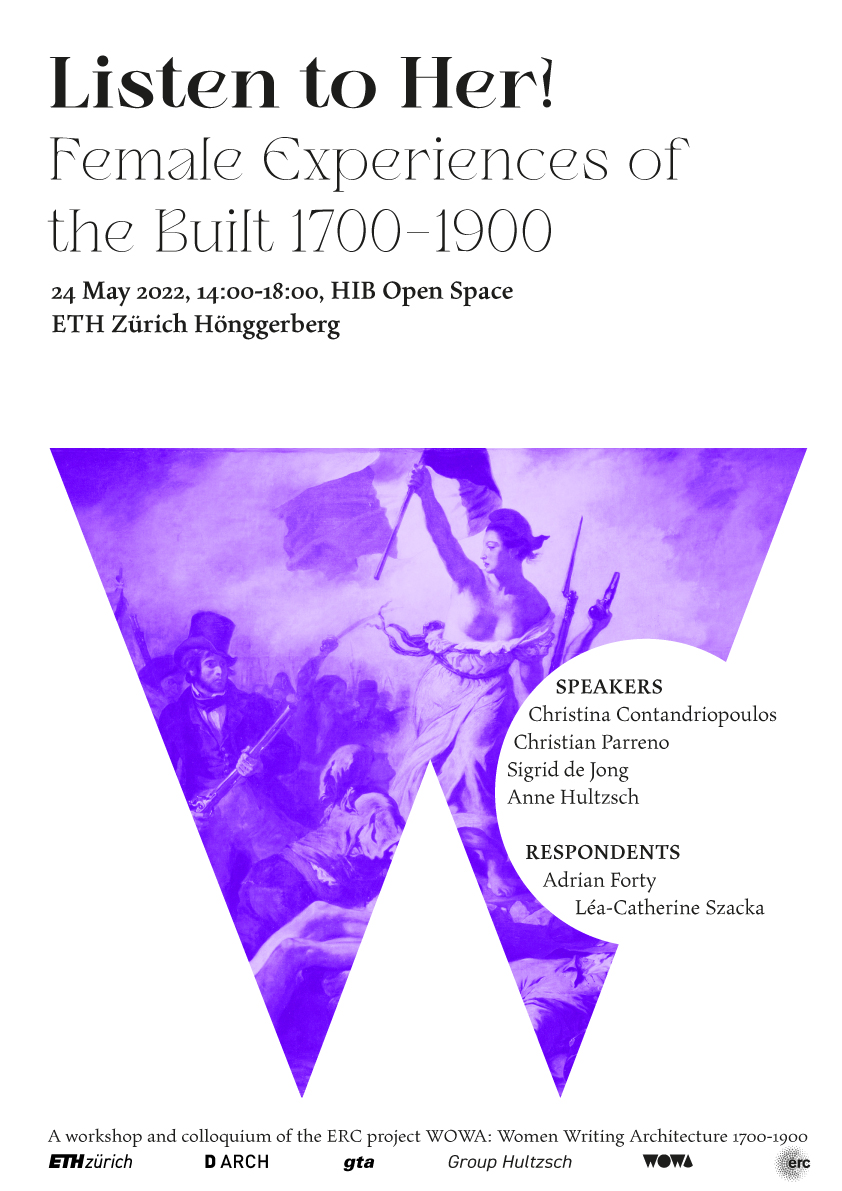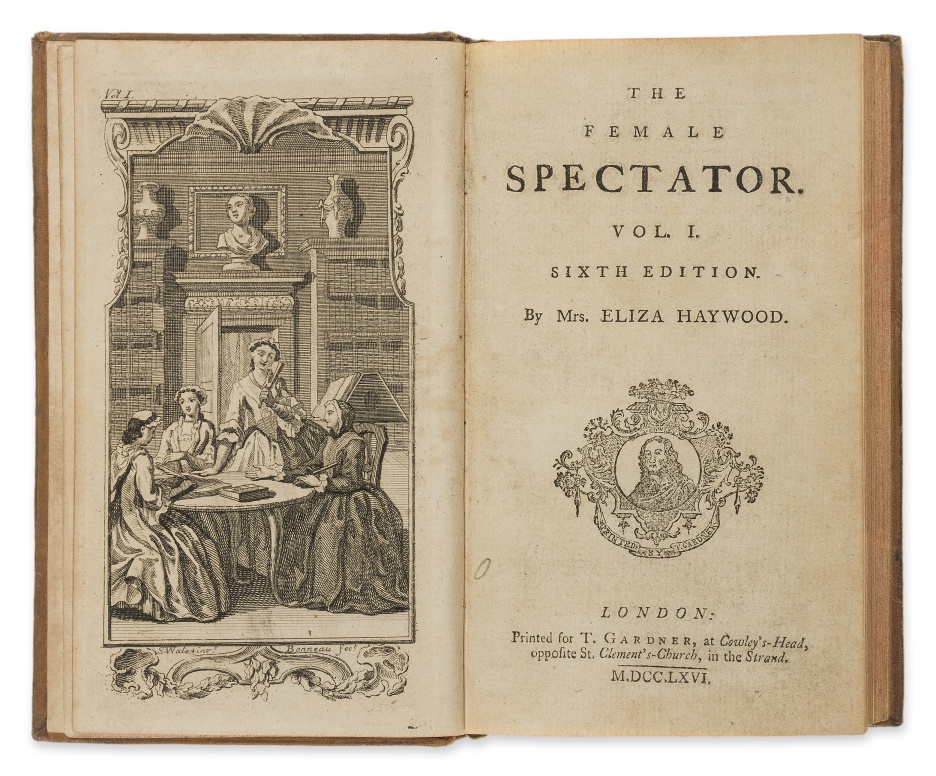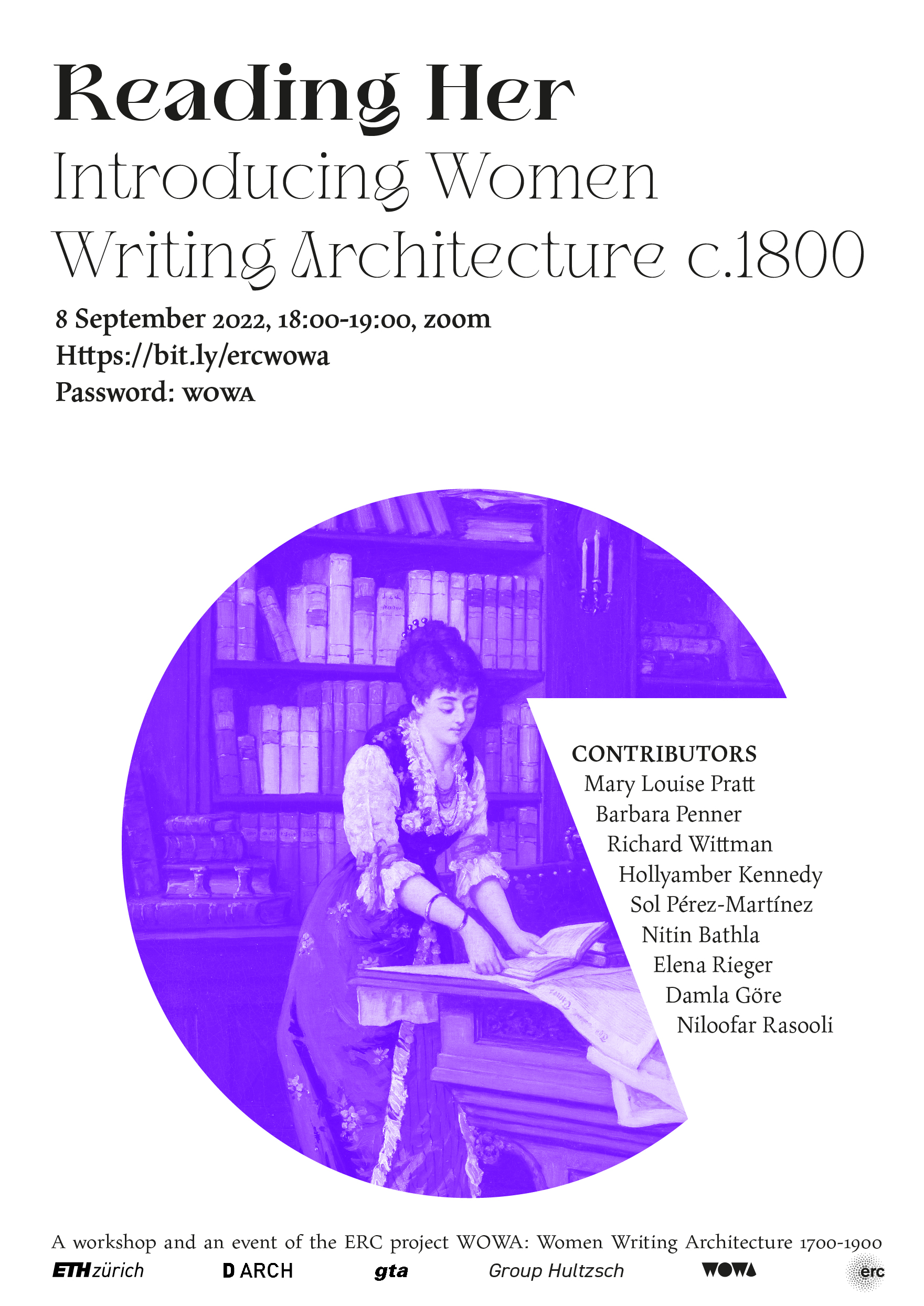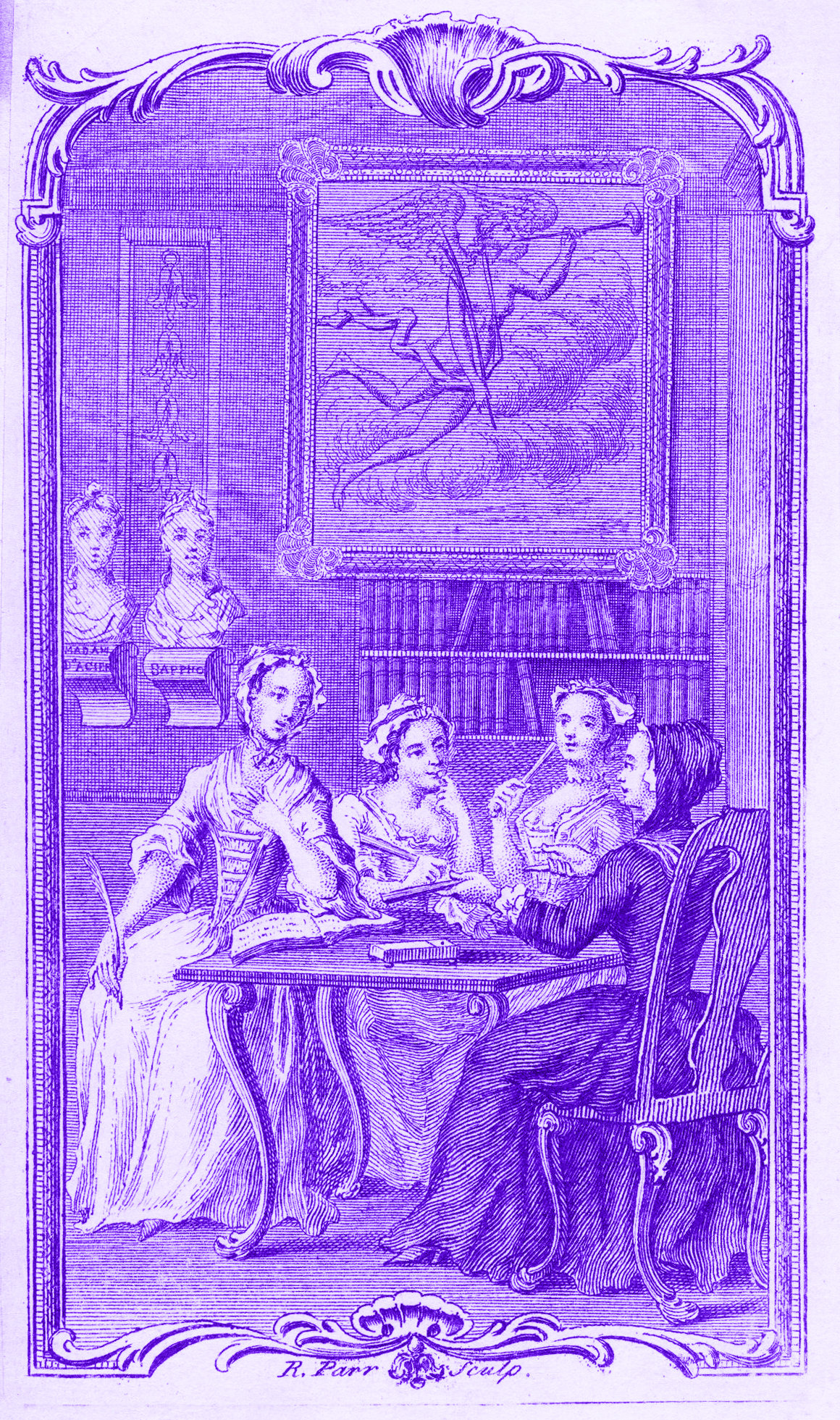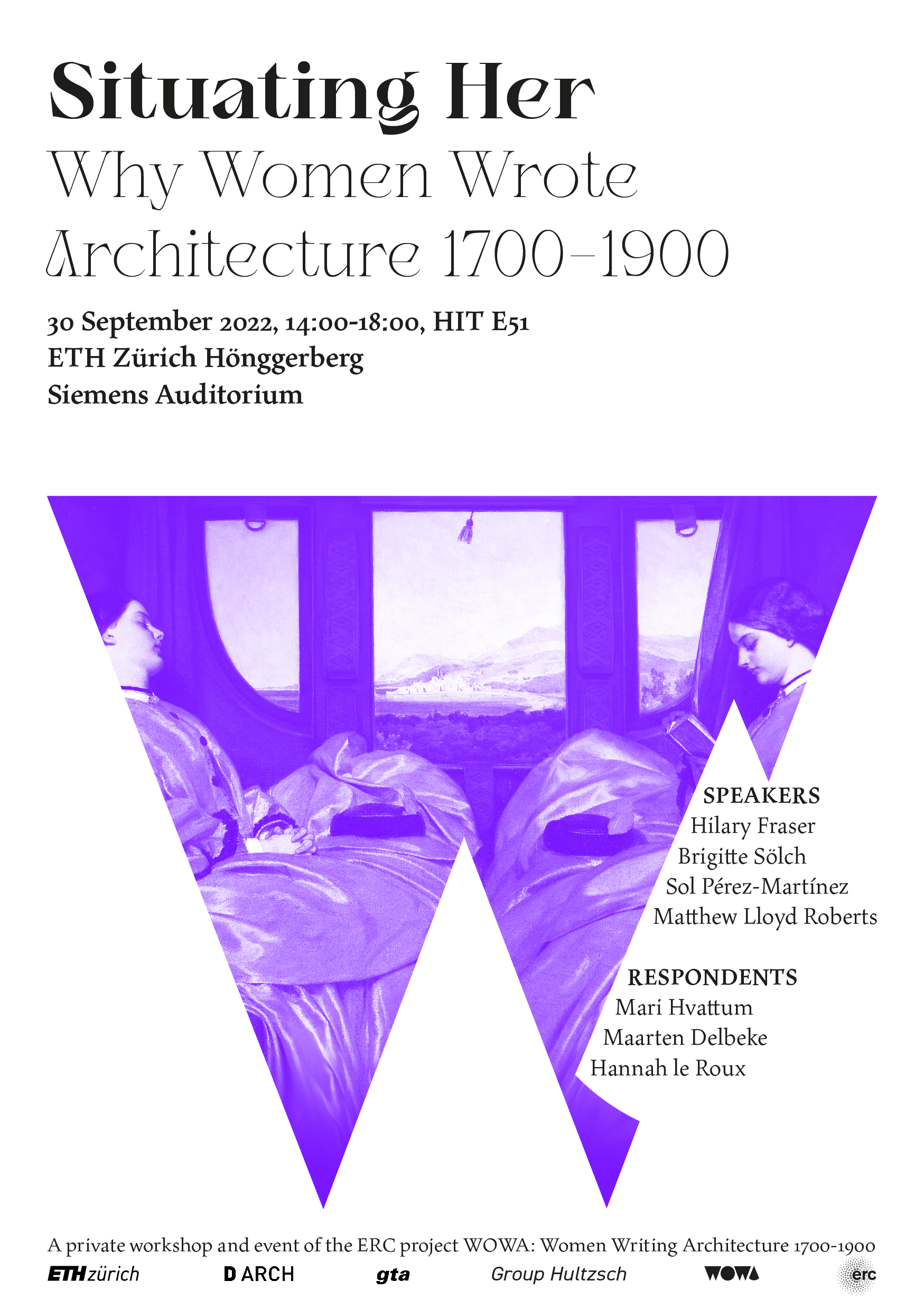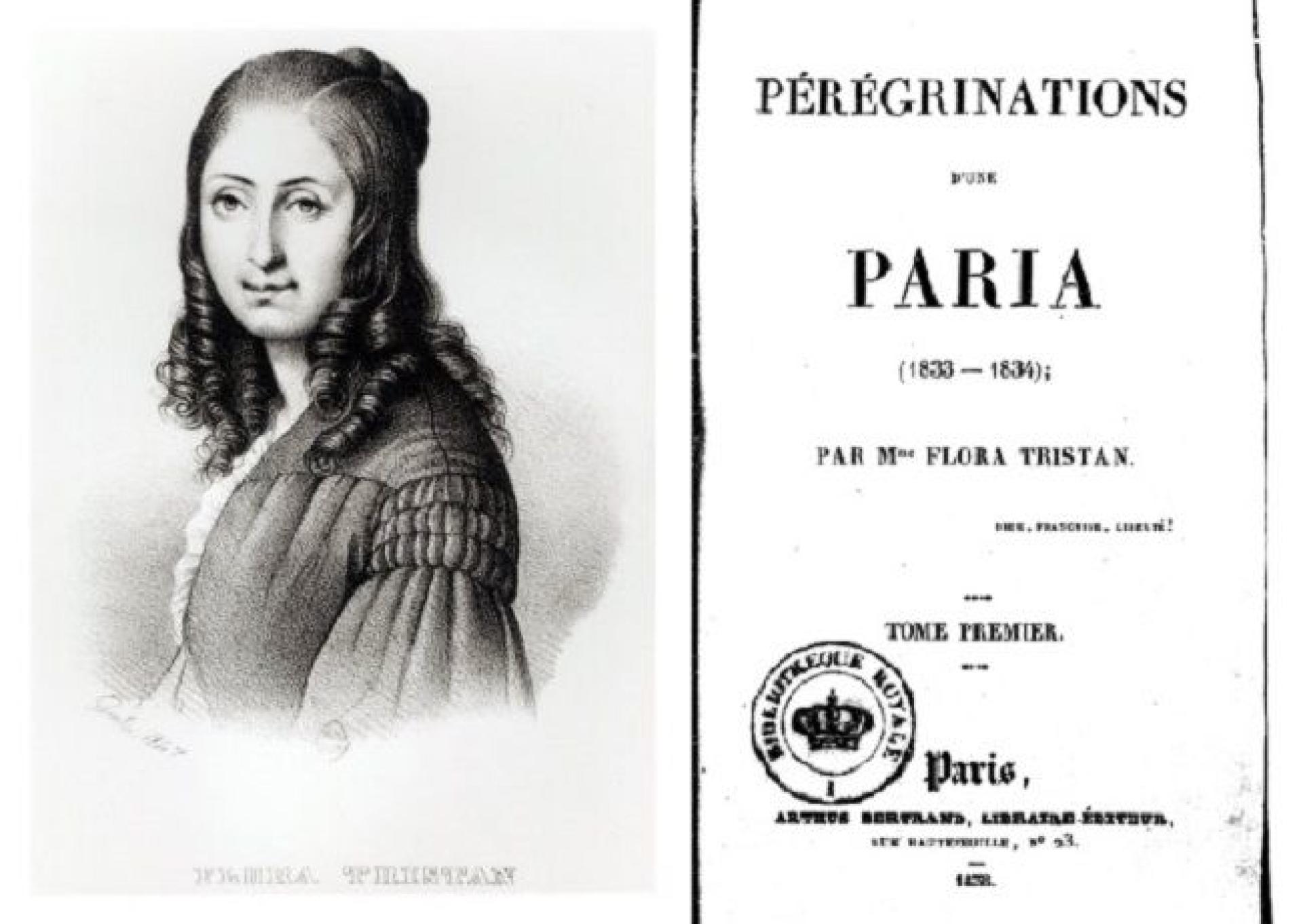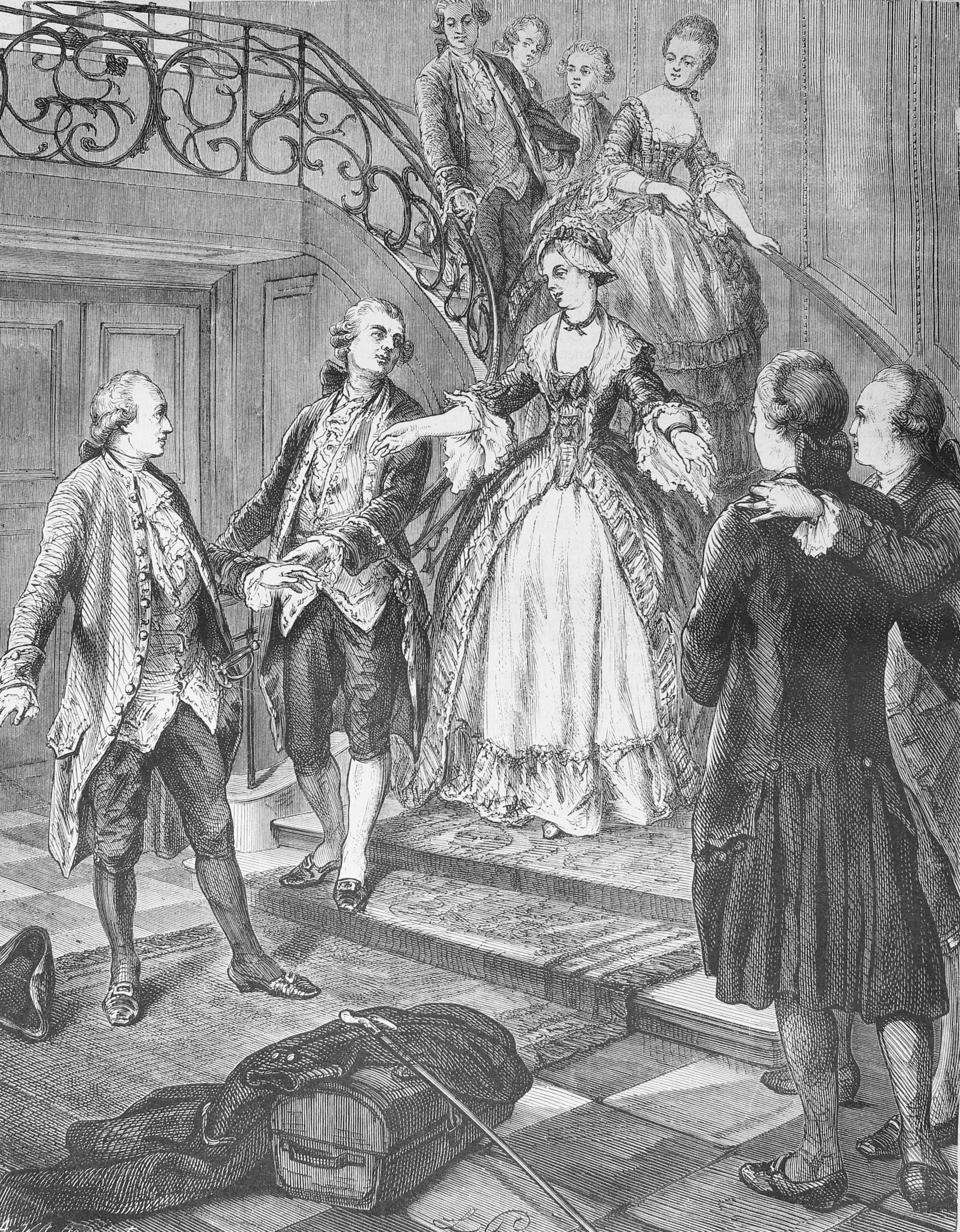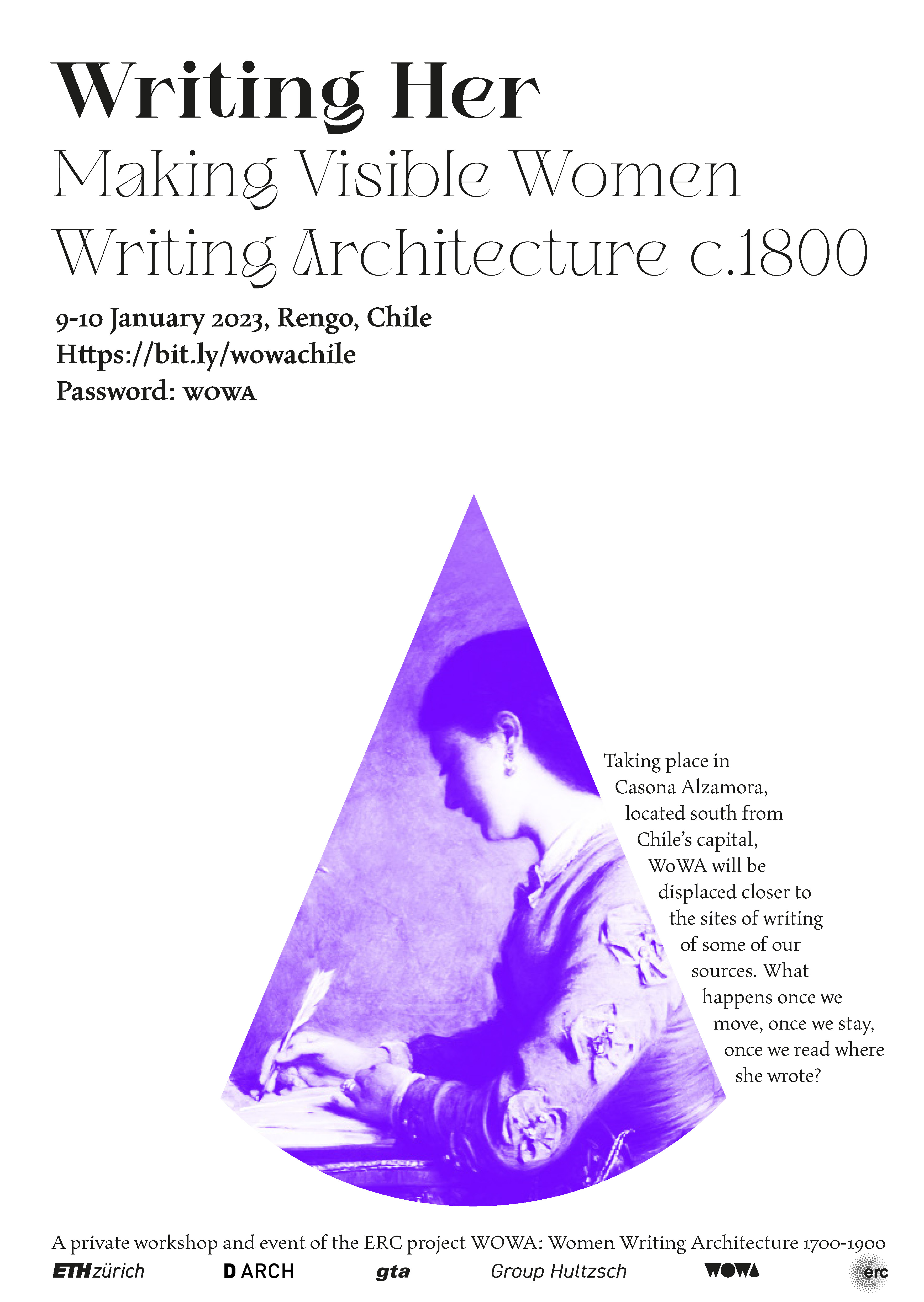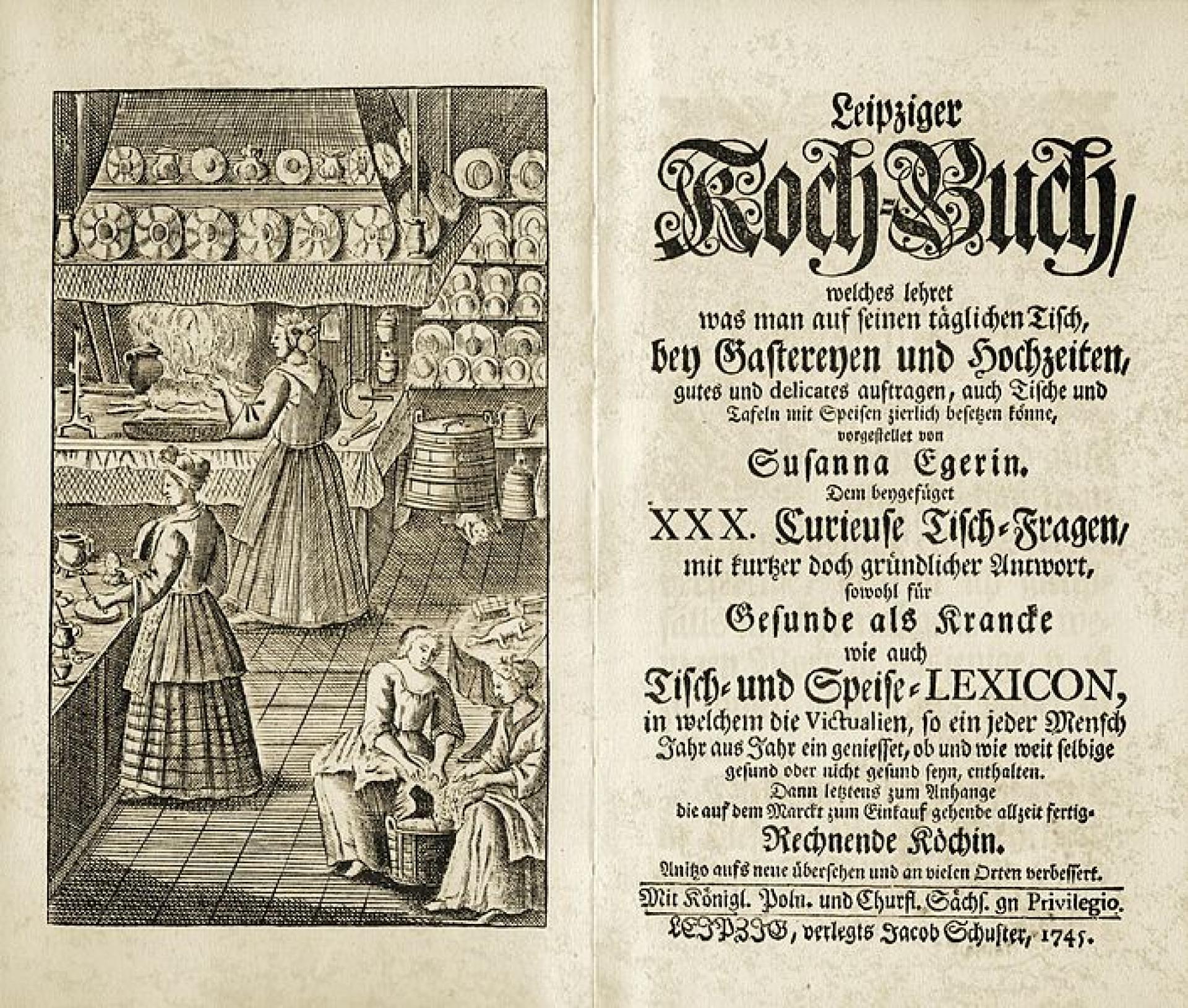About WoWA
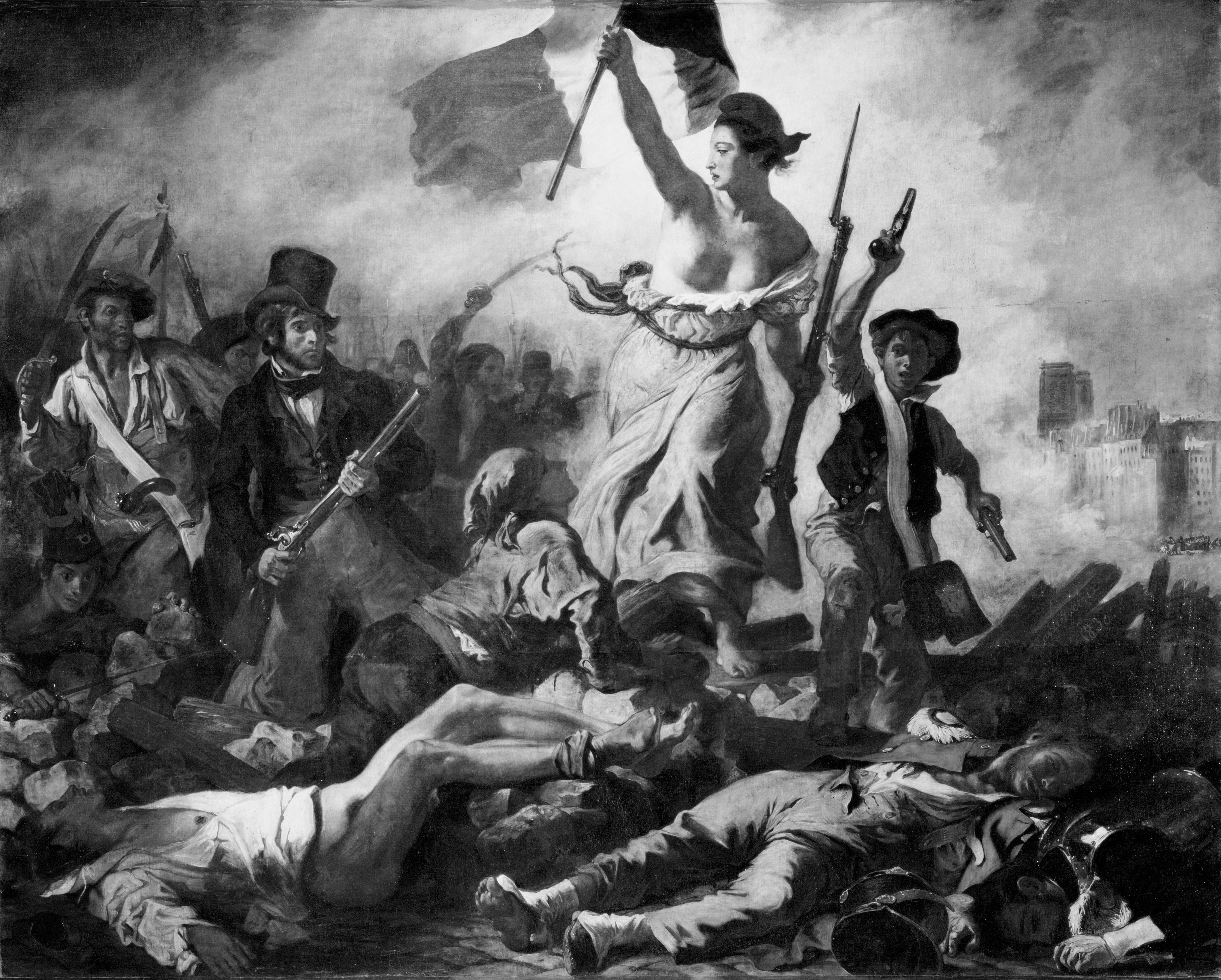 Source: Eugène Delacroix. July 28: Liberty Leading the People. 1830. Oil on canvas, 8'6¼" x 10'8" (2.60 x 3.25 m). Musée du Louvre, Paris.
Source: Eugène Delacroix. July 28: Liberty Leading the People. 1830. Oil on canvas, 8'6¼" x 10'8" (2.60 x 3.25 m). Musée du Louvre, Paris. Women Writing Architecture: Female Experiences of the Built 1700-1900*, short WoWA, studies female experiences of architecture as recorded in documentary writing drawn from specific regions in South America and Europe between 1700 and 1900. While architectural histories often focus on male-dominated processes of design and production, this project takes a new stance by unearthing women’s contributions to the architectural sphere through writing and editing.
While not part of the canon, articles, travelogues, domestic manuals, or pamphlets authored by women in the period consistently featured descriptions of or commentary on buildings and cities, but these have never been examined collectively by architectural historians. Through a combination of macro and micro research, close and distant reading, geographical mapping and tracing of experience, WoWA addresses this gap opening up a new corpus and presenting architecture’s past through the female eye.
*This project has received funding from the European Research Council (ERC) under the European Union’s Horizon 2020 research and innovation programme (Grant agreement No.949525).
*This project has received funding from the European Research Council (ERC) under the European Union’s Horizon 2020 research and innovation programme (Grant agreement No.949525).

WoWA Exhibition
Date: Wednesday, 4 March to Friday, 8 May 2026
Location: gta exhibitions, Foyer, ETH Zurich, Hönggerberg
Opening: Tuesday, 3 March 2026, 6–8 pm
https://ausstellungen.arch.ethz.ch/en
Through a forest of postcards next to an oversized bookshelf and historical prints, books, and objects, this exhibition showcases some of WoWA’s results. Based on the premise that writing can be regarded as a spatial practice, we present women’s writing as one of the activities that have historically constituted architecture as both cultural endeavour and built manifestation.
Each postcard introduces an 18th or 19th-century woman and her writing with an image, a quote, and a short text explaining the role she played at the time and the potential of her writing for architectural history. We ask: what would be missing without her? And what if we had always included her among the sources we read? An oversized bookshelf turns books inside-out: large cardboard mock-ups of books hold and preserve the scaled-up pages, originally printed and hung on the walls of our workshop rooms in Zurich, Rengo (Chile), and Montreal. Post-its and highlight markings bear witness to our slowing down to read anew and differently. Visitors are invited to pull out pages – as books – and read them in the reading window. Placed in vitrines, printed matter, books and journals as well as historical illustrations and objects demonstrate that women have always been there as active agents of the built environment. They offer a glimpse into the amount of printed output women produced in the period and tell us that they found an audience – the well-used fragment of the English 18th-century cookbook with who-knows-which food stains or the list of subscribers in the German women’s journal speak for themselves.
We invite visitors to browse and read, then to take a WoWA postcard home and ponder: What did she have to say? What happens if we listen to her? And: who else have we missed?
Curated by Anne Hultzsch in collaboration with Elena Rieger and Sol Pérez Martínez. Graphic design, research, and exhibition installation by Rémi Madrona and Audrey Man. This exhibition is part of a project that has received funding from the European Research Council (ERC) under the European Union’s Horizon 2020 research and innovation programme (Grant agreement No. 949525).
The exhibition was made possible thanks to the gta exhibitions team, consisting of Elena Bally, Melinda Bieri, Flora Bühlmann, Mina Hava, Ben Frei, Ella Mathys, Ivana Milenković, Till Kadler, Margaux Koch Goei, Sabine Sarwa, Lucas Lenzin, Julian Volken, Vitus Michel, Eva Tschopp and Philipp Stäheli.
EAHN26 Session
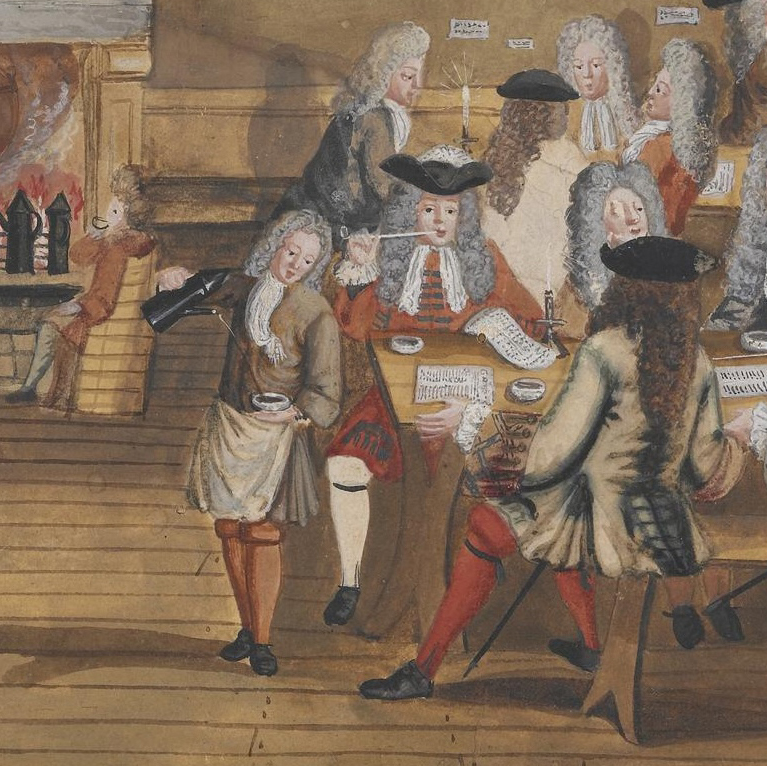
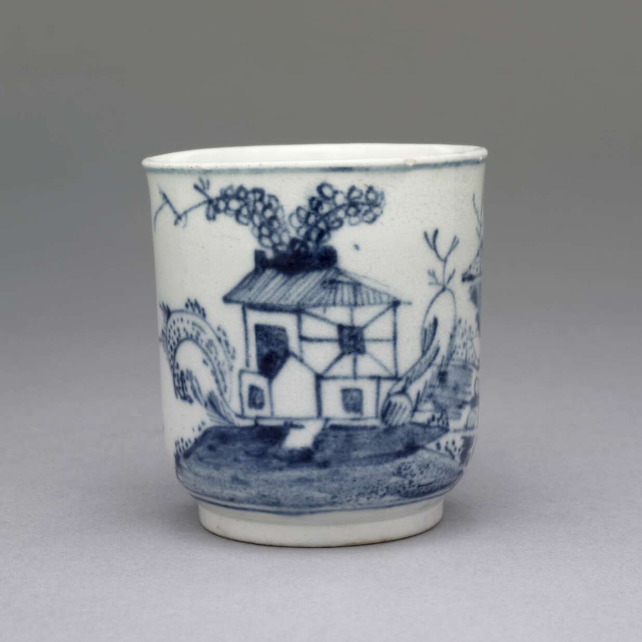
Architectural Objects of Colonial Consumption: The Material and Visual Worlds of Tea, Coffee, Chocolate, and Other Hot Beverages
CHAIRS AND CONTACT DETAILS:
Laura Hindelang, University of Bern
laura.hindelang@unibe.ch
Anne Hultzsch, ETH Zurich
hultzsch@arch.ethz.ch
This session brings together three phenomena: ceramics featuring architectural motifs; the consumption of hot beverages, made from substances, including tea, coffee, and chocolate, which played a significant role in colonial trade and imperial networks; and their spatial environments. We invite papers that centre on a specific object or space and its agency as a prism through which to interrogate broader spatial histories in any geography; we focus on the period from ca. 1500 to 1900 but are also interested in examples outside this time span if they reflect on the above questions.
https://konferencer.au.dk/eahn26/call-for-papers-1/sessions
Session in Aarhus: 17-21 June 2026

